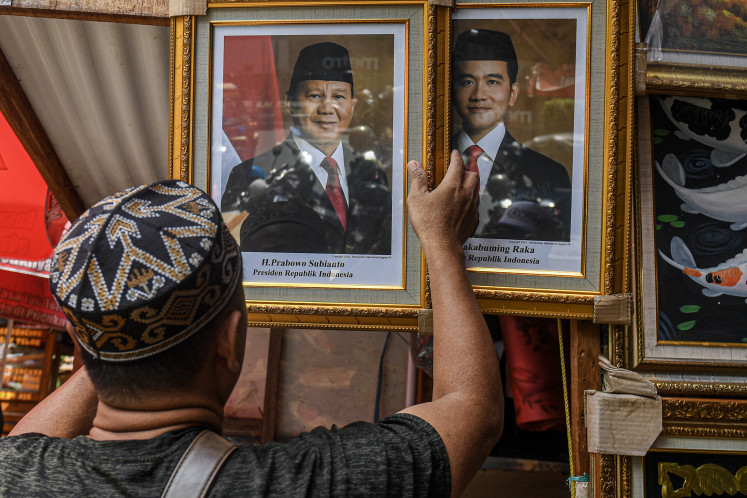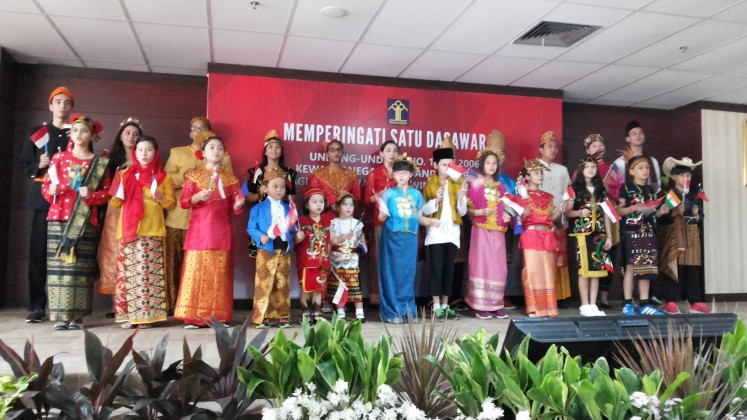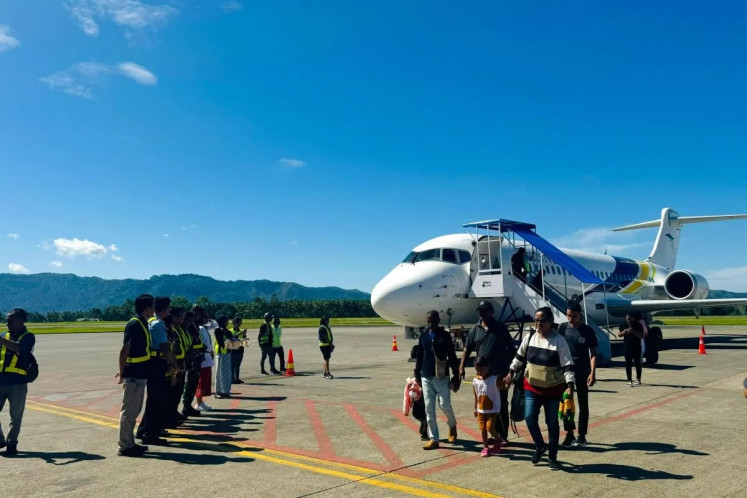America's Pacific president rediscovers Asia
He provides hope and an outstretched hand
Change Size

H
e provides hope and an outstretched hand. He provides a warm embrace, friendship and reconciliation and he is a Christian African-American. He is a moderate American with an Asia-Pacific vista that can calm even the most devout Muslim.
Barack Obama means all things to all people. And now he tells us he is America's "first Pacific president".
In line with talks he has given in Turkey and Egypt, Obama reached out to Asia on the weekend as part of his tour through a region dedicated to global development. In Singapore on Sunday he charmed and captivated leaders from some of Asia's most influential countries.
If his speeches to the Muslim world were intended to assuage conflict, his talks in Asia, notably in Tokyo on Saturday, waved flags. Not righteous, nationalistic "flag waving", but attention-grabbing flag waving.
If the US was a schoolboy, it has just returned to class after missing most of term and needs to make an effort to get ahead.
The US remains the unseen lynchpin of security, especially in Southeast Asia, but it has since become an indiscernible presence here. But with or without the US, East and Southeast Asia has moved forward in politics, security and economics. In other words, in terms of policymaking, Asia has become independent from the US.
Obama spelled out what was at stake during Saturday's address in Tokyo: "What happens here *in Asia* has a direct effect on *the US*".
Whether climate change, nuclear weapons, energy security, economic development or terrorism, Obama said these global issues cannot be resolved without aid from the Asia Pacific.
As Asia's political prominence grows, the US may have found itself in an unfamiliar position. It is not out in the cold, but perhaps on the porch, while Asia's principals deliberate inside.
The idea of an Asia-Pacific community was initially bereft of US inclusion. In a commitment plea, Obama said that the US had been disengaged from Asia's regional and multilateral organizations. But he said this had changed: "Let me be clear, those days have passed."
But what Asia needs to discern, something Obama has not elaborated on, will be what the US can offer the region.
Beyond the common concerns of nuclear proliferation and terrorism, over the past decade the US, from an Asian perspective, has perhaps too often impeded, rather than instigated, a global consensus to face challenges.
Washington continues to expound the rhetoric of free trade, but its actions are often akin to rising protectionist regimes. The slapping of import duties on Chinese-made tires in September is one notable example.
Obama acknowledged China and the headlines over the weekend highlighted that he welcomed "China's efforts to play a greater role on the world stage".
However, within these reports was a stern caveat: "America will approach China focusing on US interests.
"It is for this reason that it's important to pursue pragmatic cooperation with China on issues of mutual concern."
And an even stronger warning: "The US does not seek to contain China, nor does a deeper relationship with China weaken our bilateral alliances.The US will not waver to speak up about fundamental values we hold dear".
The question that Asia must anticipate in Obama's rediscovery of Asia is whether US involvement will facilitate stability or simmer latent tension.
Can the "spirit of partnership," as Obama put it, be implemented between the US and Asia?
So far, Obama has regained alliances with Asia with his charm and rhetoric.
But many pledged "investments" have yet to be realized, not least with new strategic partners who represent the fulcrum of democracy in the region.
Obama is a unifier, but not a definer. Constructive rhetoric is no assurance of productive policy.









